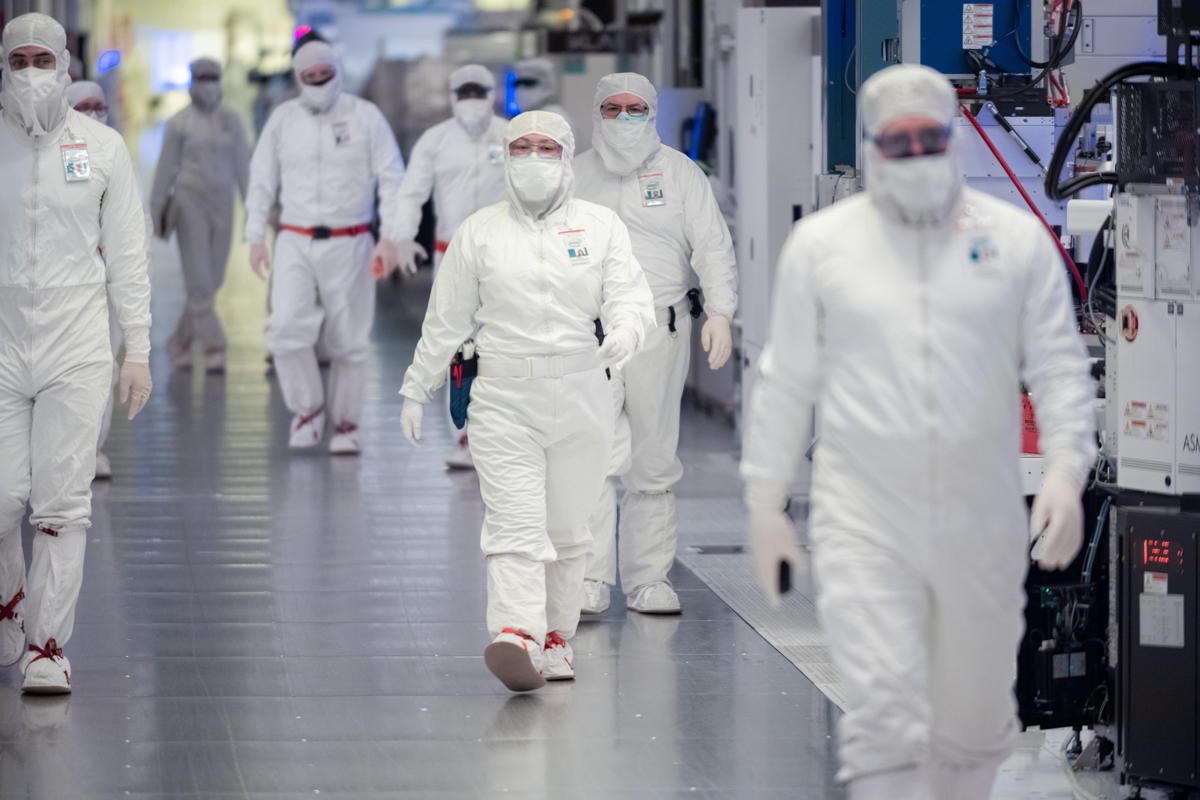TSMC Arizona Chip Plant Yields 4 Percent Higher Than Taiwan

TSMC says production yields at delayed plant in Arizona are 4 percent higher than comparable factories in Taiwan, in boost for US efforts
|
Getting your Trinity Audio player ready...
|
Taiwan Semiconductor Manufacturing Co (TSMC) reportedly said early production yields at its first fabrication plant in Arizona were about 4 percent higher than comparable factories in Taiwan, in a win for the delayed project.
Rick Cassidy, president of TSMC’s US business, related the figure in a webinar, Bloomberg reported, citing an unnamed source.
The TSMC plant is a key element in the US’ efforts to bring more advanced chip manufacturing within its borders to avoid supply chain disruption such as occurred during the Covid-19 pandemic, and which could be triggered again by geopolitical tensions.
TSMC has been provisionally awarded some $6.6 billion (£5.1bn) in government grants and another $5bn in loans, plus 25 percent tax credits, to build three fabs in Arizona under the 2022 Chips and Science Act.

‘Highly satisfactory’
The EU has approved similar funding measures and TSMC is building a plant in Dresden with state support.
A TSMC representative referred to remarks by TSMC chief executive C.C. Wei on a call with investors earlier in October, where Wei said the Arizona fab had produced “highly satisfactory” results.
“Our first fab entered engineering wafer production in April with 4-nanometer process technology, and the result is highly satisfactory, with a very good yield,” Wei said.
“This is an important operational milestone for TSMC and our customers, demonstrating TSMC’s strong manufacturing capability and execution.”
The TSMC plant in Arizona was initially planned to start production this year, but this was pushed back to 2025 as the company struggled to find skilled staff to install advanced equipment and to negotiate with workers over safety and management issues.
The production date for its second fab has been pushed back from 2026 to 2027 or 2028.
“We now expect volume production of our first fab to start in the beginning of 2025, and are confident to deliver the same level of manufacturing quality and reliability from our fab in Arizona as from our fabs in Taiwan,” Wei said on the call.
Chips Act
Intel, which is the biggest beneficiary of the US funding, has struggled with mounting business issues, but said last week it was investing $28bn to expand its facilities in Ohio, one of the sites receiving Chips Act funding.
In April Samsung Electronics was awarded up to $6.4bn in Chips Act funding to expand facilities in Texas.
TSMC broke ground on its Dresden plant in August, and an official from Taiwan said earlier in October that the company was planning additional factories in Europe with a focus on artificial intelligence (AI) chips.
“They have started construction of the first fab in Dresden, they are already planning the next few fabs in the future for different market sectors as well,” Taiwan’s national science and technology council minister Wu Cheng-wen told Bloomberg.
Wu did not specify a time frame for the company’s European plans.
TSMC has not acknowledged any plans in Europe apart from the Dresden plant.